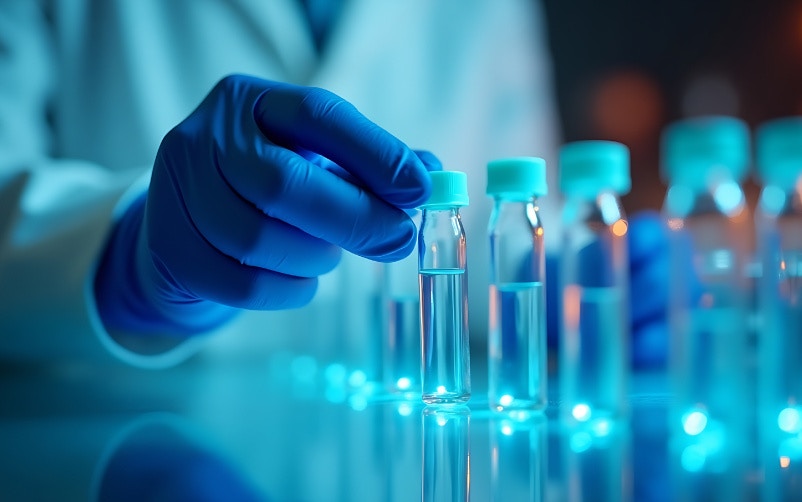Lab of the future: A precision drug delivery solution
Overview
Our client, a global pharmaceutical leader, partnered with HCLTech to develop a precision drug delivery solution and a next-generation oncology research platform. By integrating 34 pharmaceutical and diagnostic laboratories worldwide, the initiative aimed to foster global collaboration in cancer research.
This complex system connects a diverse network of stakeholders—healthcare providers, patients, drug manufacturers, DNA sequencing labs, sample collection centers and global supply chains—creating a unified platform for delivering personalized cancer treatments. Central to this transformation was digitizing lab operations, integrating 140+ applications and deploying a real-world data platform to enable data-driven oncology research.
The Challenge
Fragmented lab ecosystems and inefficient workflows
Our client aimed to revolutionize oncology by developing a precision drug delivery system and a collaborative global research platform. However, their labs faced major hurdles:
- Disconnected systems and inconsistent digitization
- Fragmented workflows across 34 labs and 600 ongoing oncology experiments
- Inability to collect and share data efficiently across regions
This lack of integration slowed the development of targeted therapies for cancers like leukemia, lymphoma and sarcoma. Accelerating research demanded a digital overhaul of lab operations and systems.

The Objective
Creating a comprehensive research ecosystem
The client sought a partner with proven expertise in lab digitization and system integration to build a scalable, intelligent research platform. Their goal was to connect diverse lab instruments, digitize 140 applications and integrate Laboratory Information Management Systems (LIMS) and Electronic Lab Notebooks (ELN) to streamline workflows.
A key requirement was to develop a system for managing experiment scheduling and preventing common errors, such as starting experiments with malfunctioning equipment or missing reagents. This solution was vital to their long-term vision of enabling global collaboration among scientists and advancing data-driven oncology research.
Unlike typical lab modernization projects focused mainly on cost optimization, this initiative was mission-critical for accelerating the development of precision cancer treatments.

The Solution
Smart integration, intelligent experiment management and error prevention
HCLTech deployed a phased, systematic approach to implement a future-ready lab ecosystem:
- Instrument categorization: Identified connected, unconnected and non-integrable instruments to prioritize integration
- Connector development: Designed data extraction protocols and built custom connectors for legacy systems
- Workflow mapping: Digitized 600 oncology experiment workflows and integrated systems like HPLC machines, titrators and weighing scales
- System integration: Integrated 140+ applications with LIMS and ELN for seamless experiment creation and execution
- Pilot validation: Conducted pilot tests in select labs to ensure system stability and real-world reliability
- Error prevention and scheduling: Introduced intelligent features to prevent experiments from running if equipment malfunctioned or reagents were missing
- Global research enablement: Built a data-driven, collaborative platform that supports global oncology research

The Impact
Enhanced oncology research and operational efficiency
The "Lab of the Future" solution produced significant outcomes, enhancing oncology research and operational efficiency while establishing a strong foundation for future advancements in precision medicine.
- ~20% productivity gain within the first year, with substantial cost efficiencies
- Integration of 34 global labs enabling large-scale data collection and real-world insights for oncology research
- Foundation for precision medicine connecting providers, labs and supply chains into a unified ecosystem
- Research-focused differentiation emphasizing global collaboration over traditional cost-saving objectives
- Future roadmap including expanded data integration and AI-driven experiment management
- Accelerated personalized cancer therapies, driving faster, more targeted treatment development
Looking ahead, the system offers a roadmap for continuous enhancement, with plans to expand data integration and refine AI-driven experiment management, paving the way for more effective, personalized cancer treatments.








